Shea Butter, going over the miracle of Mother Nature, We do love you!
HoneyColony is one of the companies that I have been promoting that I really feel proud to do it. Since about a year ago that I have started to promote HoneyColony it makes me feel so good and I enjoy my work every day. I can honestly say that their product does what they say it will do. They are organic and their ingredients are honest.
During this year of research, I was looking more deeply for legitimate Certified Organic, non-toxic choices, especially, no-animal-testing. There is a lot of business that is carrying a lot of lyes on their trail. It is very important that you stick with the transparency that these Solutions can give to you. Believe me, I will pay the price if the price really deserves to be paid. I don’t mind the hard work as long it will give me clearance, and security in my convictions. That meaning, I will never, ever give anyone a review that is not accurate. Indeed!
Shea Butter: A Quiet Revolution in Northern Ghana
So, I have gotten to know Aseda Shea Butter is a unique, rich and also natural moisturizer with over 30 health benefits. It’s extracted from the nuts of Shea Trees, that comes from the Savana’s of Africa. The Shea Trees are treasured health properties and growth. They can live up to 200 hundred years.
Shea Butter is for many from Ghana, Africa a healer and deep-moisturizer. A salve that can definitely help with Dry Skin and the problems that it can cause. Harvest the shea butter is a job that belongs to the women. of Ghana. Supposed to be a degrading job for men. Being a second hand performed by women in the late hours of the evening. It now has become a big business that is empowering Ghana women to compete in a culture that pure much belongs to the men.
They wake up first thing in the morning and pick it up, sometimes not even wearing shoes. It’s hard work that they do with their kids wrapped on their backs. Late in the evening after dinner, they work on to process the Shea Butter, that will be the last thing they do. It takes 7 days to do the process that is divided into different phases to make it easy for the women that have so many chores throughout the day.
The story about Shea Butter is huge because it has been going on for thousands of years. It started in Egipt. To protect Africans from the heat waves of the Sahara and the Savanah, it’s rich in unsaturated fat, essential fatty acids, phytosterols, vitamin E and D, provitamins and allantoin, Shea Butter helps stimulate Collagen production, also. These Nutrients together help Skin maintain its youthful glow, protect from “UV” sunlight. Extreme weather conditions, environmental toxins, dehydration, fight inflammation and prevent stretch marks. It’s Just Shea.
Aseda Shea Butter is uniquely different from the machine processed Shea Butter on the market. Wild harvested and crafted by a woman run co-op in the Mole National Forest. Many machines processed Shea Butter is produced on plantation-based Tree Farms.
35,000 tons of Shea Butter has exported annually from Africa. Studies also have shown it to be a good anti-inflammatory.
Aseda shea butter
Praise for Aseda Shea Butter.
Why We Love it:
- Deeply moisturizes
- Antioxidant and anti-inflammatory
- Gentle and soft enough for the baby care
- Protects, strengthens, and regenerates skin
- Aids in stimulating collagen production
- Prevents stretch marks
- Does not expire
- Helps prevent and treat dry skin, stretch marks, skin discoloration, wrinkles and blemishes
- Rich in Vitamin A, E & D, essential fatty acids, provitamin A and allantoin
- Does not clog pores
- Provides UV protection
- Soothes Eczema, psoriasis, diaper rash, hives, insect bites, contact dermatitis and reaction from poisonous plants
- Help treat burns, minor cuts, and repair scars
- Prevents wrinkles
- Helps heal aching muscles and remove and eliminate toxins
- Beauty benefits of Shea Butter
How Your Purchase Helps Globally:
- Supports women run co-op and empowerment project
- Keeps chemicals found in cosmetics out of our waterways and off of your skin.
- Supports a healthy bee population
- Helps Non-GMO policy efforts
- Protects a wildlife preserve and ancient forest, an indigenous bee population, and biodiversity.
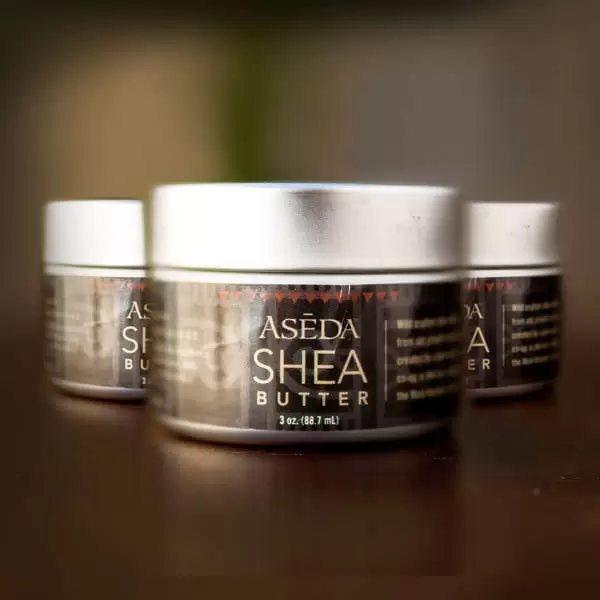 Aseda Shea Butter 3-Pack$56.85
Aseda Shea Butter 3-Pack$56.85aseda shea butter 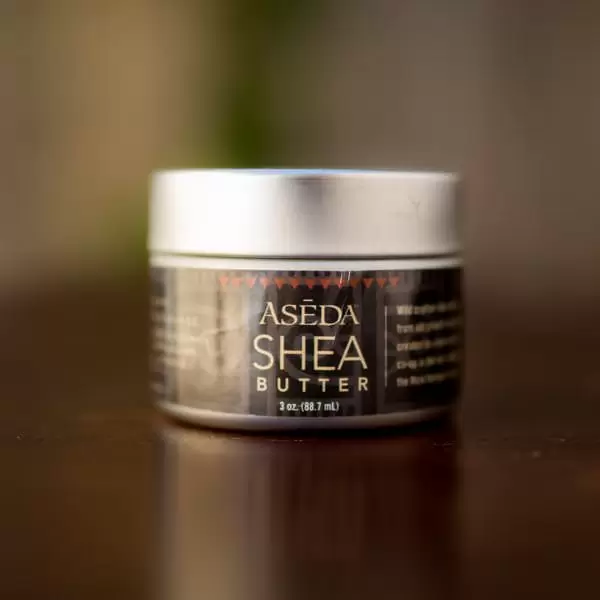 Aseda Shea Butter
Aseda Shea Butter$18.95$14.95
How many of us have found ourselves buying a beauty product due to a magical ingredient we’re sure will make us gorgeous? If we were honest, we’d have to admit that we usually have absolutely no idea what that ingredient even does.
Shea butter just may be one of those healthy and trendy substances.
Sure, we know it moisturizes our skin fabulously, but what else can this soothing butter do for our bodies? The truth is the health and beauty benefits of shea butter are plentiful.
What Is Shea Butter?
1. Moisturizes Deeply
Undoubtedly, the most common reason people grab Shea butter is for its natural ability to moisturize. Bessie McIntosh, Co-Founder and “Buzz Director” of Aseda, a company that sells high-quality Shea butter, calls Shea butter the “perfect substance to hydrate the largest organ in the human body, the skin.”
Beyond using Shea butter as a daily moisturizer on body or face, the hydrating Shea butter provides can help with the following:
- Eczema
- Dry, Itchy Scalp
- Chapped Lips
- Razor Burn
- Diaper Rash
- And more
2. Offers Anti-Inflammatory Properties
Many times people will make ungrounded claims that their product is anti-inflammatory. Shea butter, however, has the science to back up its anti-inflammatory powers. A study performed in 2010 showed that not only does Shea butter offer a “significant source” of anti-inflammatory properties, but it also has “anti-tumor promoting compounds.”
As a wonderful anti-inflammatory, Shea butter can aid in muscle aches and muscle recovery. This means tossing a tub of Shea butter into your gym bag is a nifty idea.
3. Promotes Anti-Aging
Shea butter contains a high antioxidant content, which helps promote youthful skin. Beyond those nutrients, Shea butter helps stimulate collagen production, the building block to skin’s elasticity. More collagen equals fewer fine lines and wrinkles.
As McIntosh shares, “My personal interest came from meeting one of our Ghanaian Advisers’ father. He was well into his 90s and looked younger than his 56-year-old son. There was not one crease on his face. I asked him how this was possible? He shared with me the ancient secret. Shea butter, head to toe, every day, since he was a baby.”
4. Provides Sun Protection
Another reason Shea butter is considered an anti-aging wonder is its sun protection properties. Boasting a “natural SPF factor” as McIntosh describes it, Shea butter is actually considered between an SPF 3 and SPF 6 and has the ability to protect the skin from UV rays.
Shea butter is not only helpful before the sun, but also after sun exposure. Its nourishing antioxidants help soothe and actively heal sunburned skin. What’s more, you can also use Shea butter in your hair to add a wonderful extra layer of protection during a sunny day.
The Most Ethical Shea Aseda Shea Butter On The Market Today

5. Helps Prevent Stretch Marks
While it might be impossible to never again find yourself without a stretch mark, there are certainly ways to keep them to a minimum. Modern Mom blog recommends using Shea butter to help “restore elasticity” and make the stretch marks “less noticeable.”
The blog post also recommends massaging the shea butter into the stretch-marked skin daily, for at least 10 to 20 minutes. Since we already know that shea butter has anti-inflammatory properties and antioxidants, we can be sure this won’t be a pointless activity!
6. Soothes Insect Bites And Allergic Reactions
There are few things more annoying and troublesome than insect bites. Once again, it’s shea butter’s anti-inflammatory power that offers wonderful relief to insect bites. Rubbing some shea butter on the itchy bite, throughout the day, brings relief and speedier healing.
You can also turn to Shea butter for soothing relief from poisonous plants or any other substance you get a red and itchy allergic reaction to.
7. Gives Safe Baby Care
It is a wonderful thing whenever the same product you use on yourself can be used on your baby or little one. Pure Shea butter is a gentle substance that is safe enough to grace your baby’s gentle skin.
Use Shea butter as a diaper rash cream or a gentle, yet highly effective, moisturizer after bath time. Since Aseda Shea butter is safe to eat, you will not have to worry about your little one’s fingers going in their mouths after you have moisturized them.
Does Brand Matter?
Like any other health and beauty product, not every Shea butter is created equally. Bessie McIntosh explains, “there are three different grades of Shea and different processes used to create Shea butter from the nuts.” Her brand, Aseda, for instance, is grade A Ivory Shea, the top rating. It is entirely pure with no added fillers. “We offer our Shea butter raw,” she explains, “the way nature intended it.”
 Taylor DuVall is a freelance writer, editor, and blogger. As a digital nomad, Taylor runs her business while traveling the world, reading endless books, strumming her guitar, and practicing yoga.
Taylor DuVall is a freelance writer, editor, and blogger. As a digital nomad, Taylor runs her business while traveling the world, reading endless books, strumming her guitar, and practicing yoga.Submit your story or essay to Buzzworthy Blogs
Description
Aseda Shea Butter is a rich, and all-natural moisturizer with over 30 health benefits! Extracted from the nuts of Shea trees native to the Savannah’s of Africa, the Shea tree is treasured for its health properties and growth. On average Shea, trees can live up to 200 years!
Asea Shea Butter is uniquely different from the machine processed Shea butter on the market. Wild harvested and crafted, Aseda Shea butter is crafted by a women-run co-op in the Molé National Forest. Many machines processed shea butter are produced on plantation-based tree farms.
Shea butter has been used for thousands of years to protect Africans from the severe heat conditions of the Sahara and Savannah. It’s richness in unsaturated fat, essential fatty acids, phytosterols, vitamin E and D, provitamin and allantoin. Shea butter helps stimulate collagen production also. Combined, these nutrients help skin maintain its youthful glow, protect from UV sunlight, extreme weather conditions, environmental toxins, dehydration, combat inflammation, and prevent stretch marks!
God be with you, always!
Sincerely!
Luzia Soares.
green-approach.com

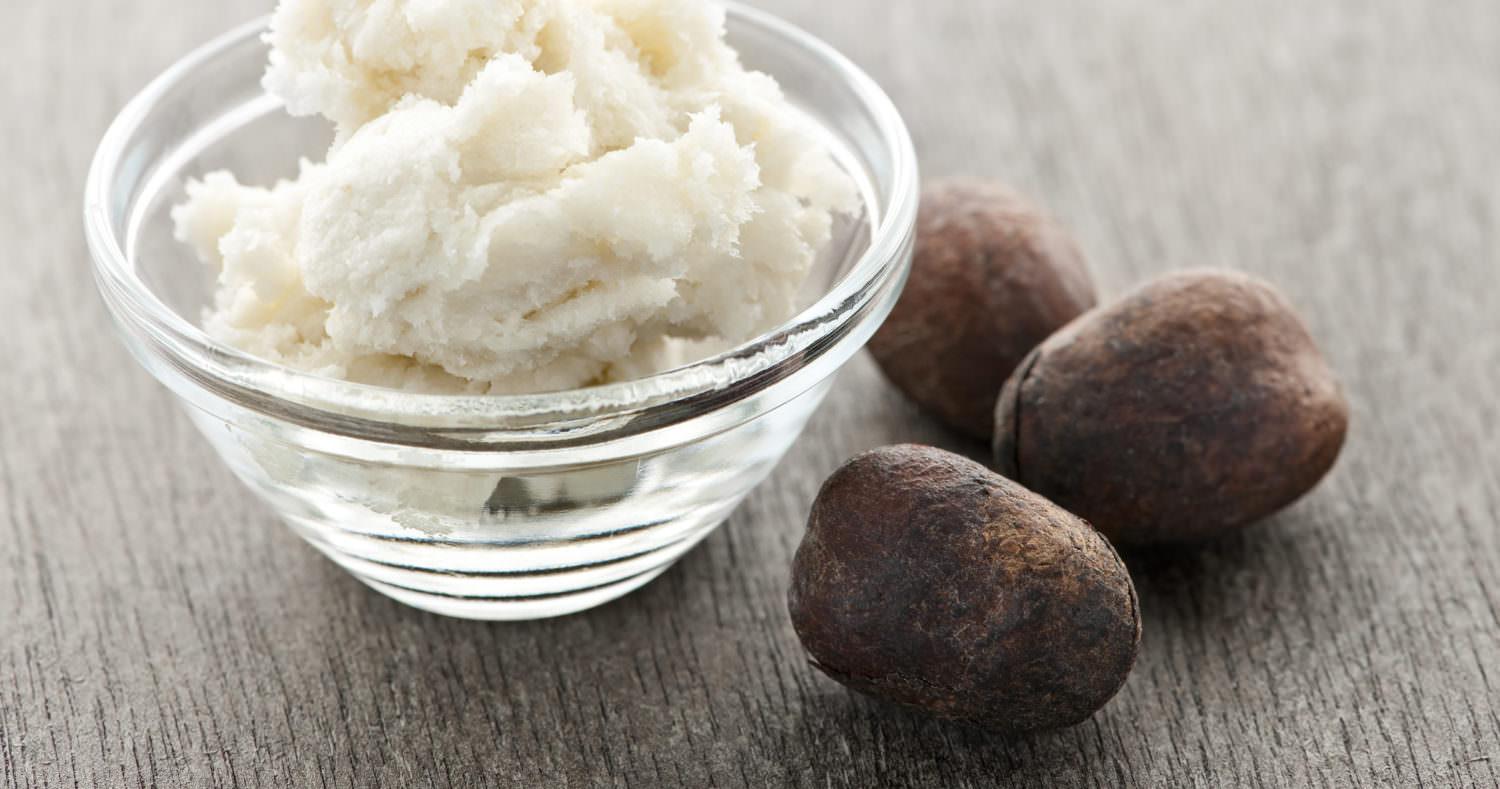
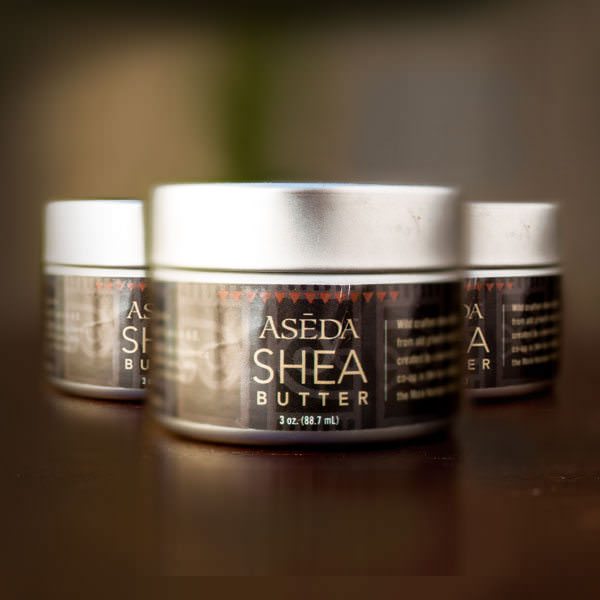
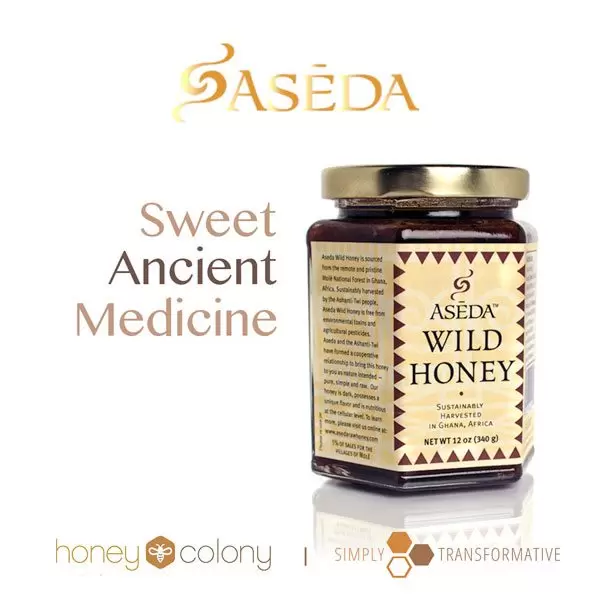

 Maryam Henein is an investigative journalist, professional researcher, and producer of the award-winning documentary
Maryam Henein is an investigative journalist, professional researcher, and producer of the award-winning documentary 